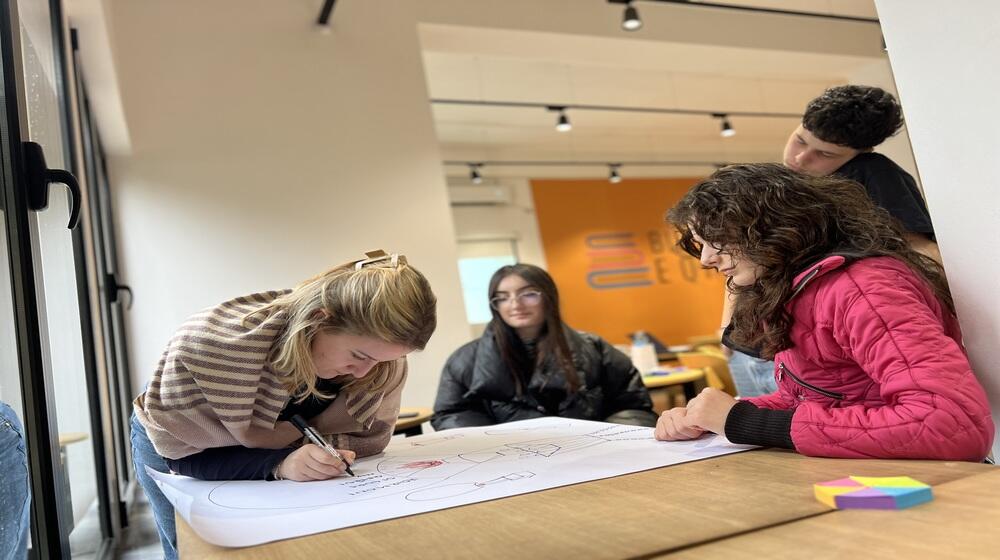A new generation of peacebuilders is emerging in the Western Balkans, driven by the values of inclusion, equality, and trust. These young leaders are poised to influence their communities and the broader region in meaningful ways.
Among others, a coalition of young people on peace and non-violence education is established, led by young people of the youth-peer network or otherwise known as Y-peer network, and the UNFPA is supporting its expansion and strengthening.
This initiative harnesses the skills and creativity of young people to promote constructive narratives, cooperation, intercultural dialogue, mutual understanding and trust. Y-peer methodology is designed to empower young people as agents of positive change, placing their experiences and ideas at the centre of the learning process rather than relying solely on adult ‘experts’.
A key element of the Y-peer strategy is its catalytic ‘snowball’ effect. Youth who participate in the programme often become advocates, promoting the values of inclusion and diversity. These young leaders are likely to influence the future of the region, highlighting the importance of investing in youth today.
In small towns, where exposure to such initiatives has been minimal, participants like Megi and Bora found new perspectives. Megi realized, "We often unintentionally exclude others. It's crucial to become aware of these behaviors to promote peace and mutual respect." Bora added, "I learned that even small actions can contribute to a peaceful society. And this project made it possible.”
The Y-peer learning programme is comprehensive, equipping young leaders from diverse backgrounds – whether from rural areas, small towns or large cities, different ethnic, cultural and gender identities - with the tools to replicate their training among peers. The trainers, themselves products of the programme, play a crucial role in expanding the network by identifying and motivating new participants. The overarching goal is to foster social cohesion and understanding among diverse groups.
After completing their training, Albanian youth leaders apply their Y-peer skills in daily life, inspiring others along the way. For instance, Hadisa Nasufi, a member of the Y-peer network in Dibër, said: “In Dibër, as a member of the Y-peer network, I am engaging in activities to raise awareness of the importance of peace and tolerance among young people. One of the specific actions is the organization of educational sessions in the high school where we talk about the importance of effective communication and resolving conflicts peacefully.”
The network’s impact is evident in the connections it fosters among young people from different backgrounds to collaborate on local peacebuilding efforts.
Klarencio Arapaj says: “the Youth, Peace, and Security training provided me the opportunity to mentor and facilitate, which has been incredibly rewarding. Through these experiences, I realized the significant impact we can make in promoting peace and supporting community-driven initiatives.”
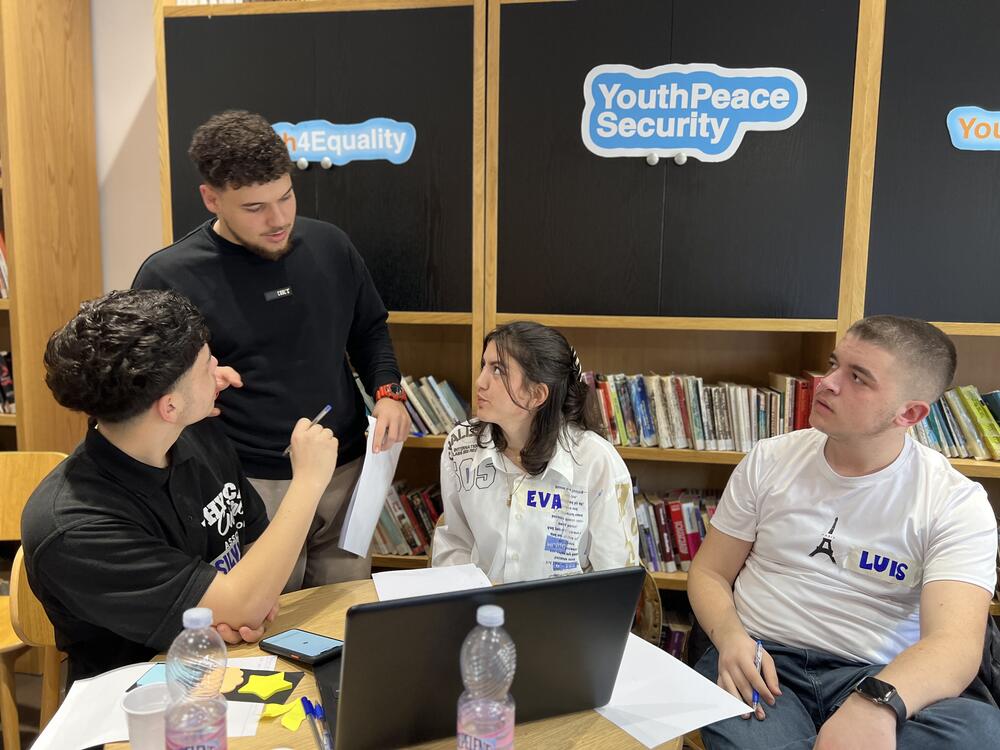
Using interesting and appealing ways of learning ensures that educational content is memorable and impactful. Silvio Tocka’s journey exemplifies the programme’s long-term influence. He participated in a training in Prrenjas in 2022 and afterwards, he applied for and was selected to attend the annual Human and Minority Rights Academy co-organised by the Regional Youth Coordination Office and UNFPA. In 2024, Silvio also applied for a training organized under a project tackling harmful narratives, where he was recognized for his outstanding ideas. Silvio remains actively involved with the volunteer group: "Participating in the training at just 15 in my small hometown of Prrenjas opened up a world of possibilities for me. Winning recognition for my project idea showed me that even young people from small towns can make a big impact. I'm more committed than ever to promoting peace and security within my community."
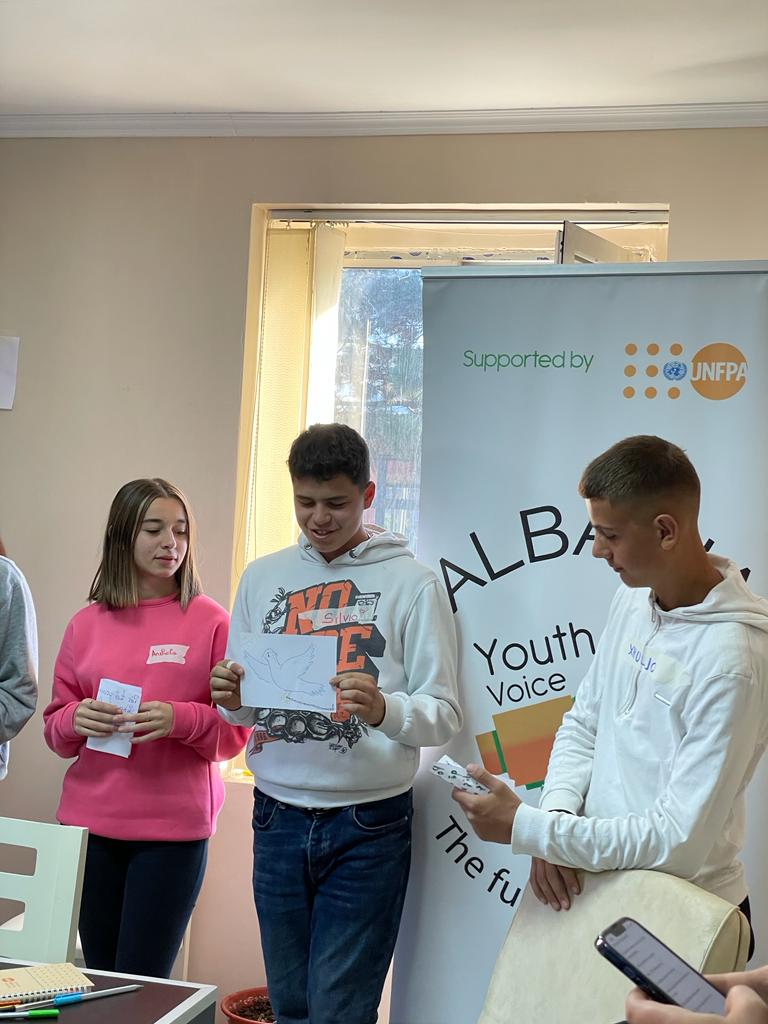
As a result of Y-PEER training and network support, with the support of the Peacebuilding Fund initiative, these youth members are now equipped to implement impactful initiatives within their communities. Their ideas focus on youth capacity building, and promoting peace at local level through creative expressions, youth-led ideas and initiatives sponsored by municipalities such as: creating virtual safe spaces in schools for anonymous reporting on violence, school debates to promote tolerance and combat hate speech, running for tolerance, creating arts, exhibition, and murals with the message of peace in different municipalities.
Hadisa Nasufi continued, “I have gained new knowledge and skills that I am applying in various ways. One of the ways is by creating a youth support group in Dibër, where we organize discussions and activities that focus on peacebuilding and conflict resolution. I used Y-peer's training manuals and educational materials to create interactive learning sessions in my community. For example, during a workshop on human rights and the importance of respect for diversity, I used educational games and exercises that I learned during the training to help the participants understand the concepts of peace and tolerance.”
Anxhela Kokoshi’s journey, another y-peer trainee, exemplifies the impact of YPS training programs. It highlights her evolution from a participant to a leader, actively contributing to peacebuilding initiatives and inspiring others in her community. Anxhela says “The Youth, Peace, and Security training was a transformative experience for me. It equipped me with the skills and confidence to lead and make a meaningful impact in my community. This journey has shown me the power of youth-driven initiatives in fostering peace and positive change.”
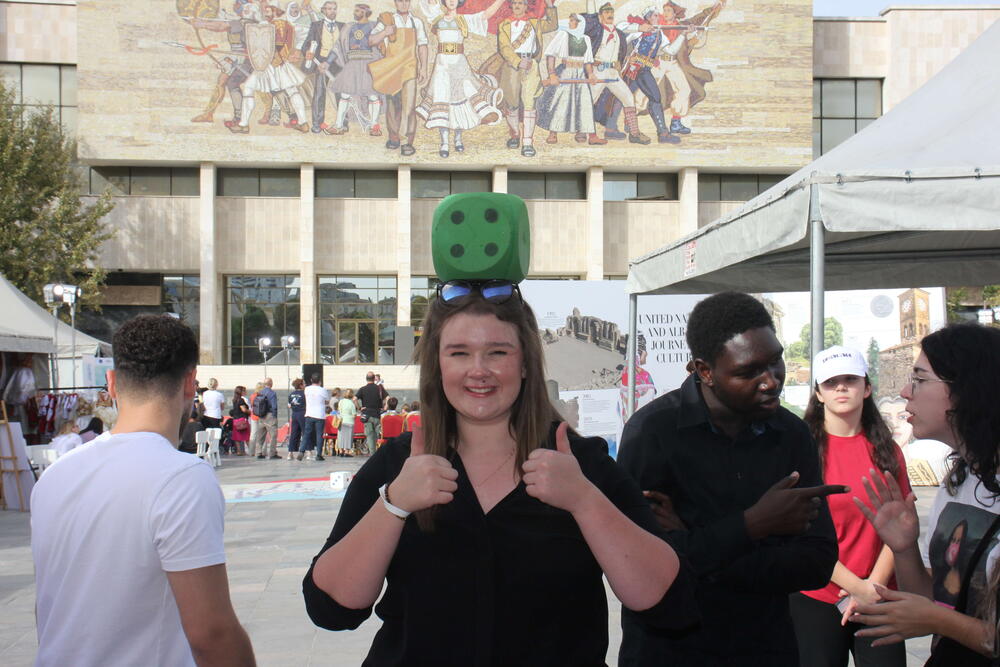
In 2021, the Y-PEER methodology was formalized into a comprehensive training manual on Youth Peer Education for Peacebuilding and Conflict Transformation. This manual, which aims to foster social cohesion and understanding among diverse groups has been translated into regional languages. Also with the support of the PBF project, the manual is now integrated into the pre-university educational level within extracurricular activities planned and implemented by students’ governments in high schools. This integration ensures a lasting impact on the educational system and has proven to be self-replicable within higher education. Professors have already begun incorporating the manual's contents into their courses and extracurricular sessions, and there are plans to expand Y-PEER to pre-university and university education levels, making the manual a resource material for elementary, high schools and universities. This expansion would ensure that a wider and more diverse group of young individuals receives this essential education formally in school, enabling them to promote respect for diversity and peace in their communities, in addition to continued educational work with out-of-school young people, especially the marginalised, vulnerable, remote areas, poorer, NEET youth groups.
Ola Sejko from Kamëz, suburbs of Tirana - “I am very happy to participate initially as a participant, and then contributing as a member of the trainers’ team. It was a very beautiful experience which made me reflect on the importance of youth engagement to prevent and solve conflicts, to respect the rights of marginalized groups and to end discrimination in our society. I would recommend to all young people, to become part of such initiatives and projects organized in their schools and towns, and why not, to come forward, speak out and exercise their abilities as peer educators.”
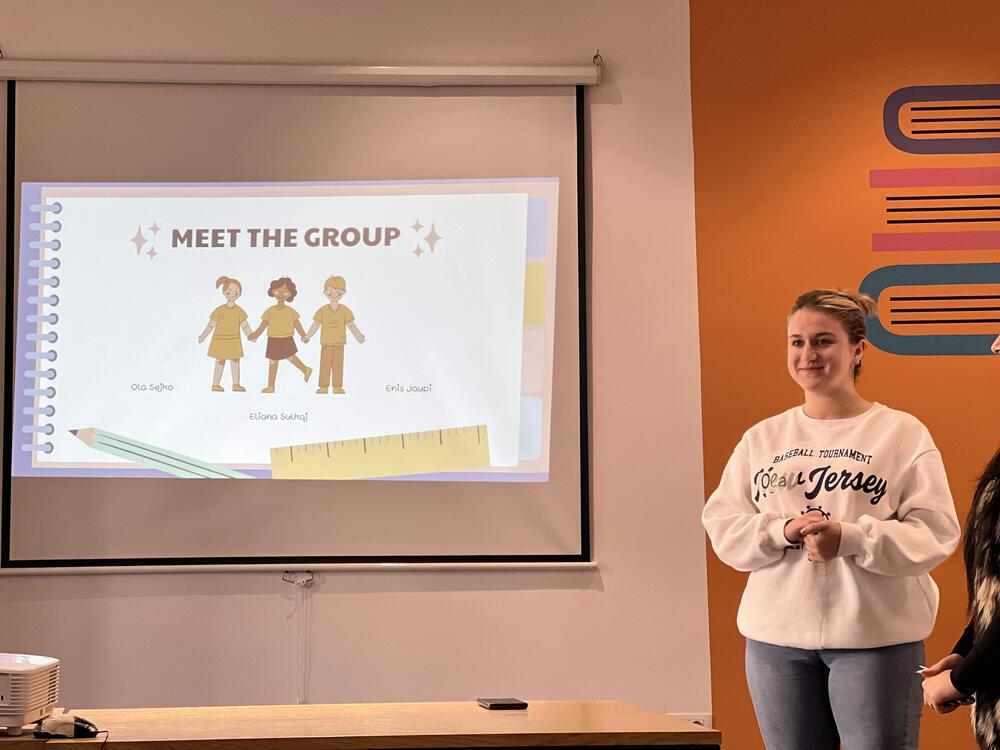
Supported by a regional project funded by the United Nations Peacebuilding Fund (PBF) and implemented by UNDP, UNFPA, UN Women and UNESCO, a regional network of peacebuilders has expanded significantly in Western Balkans.

